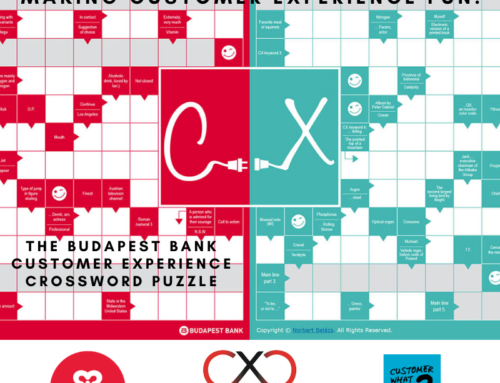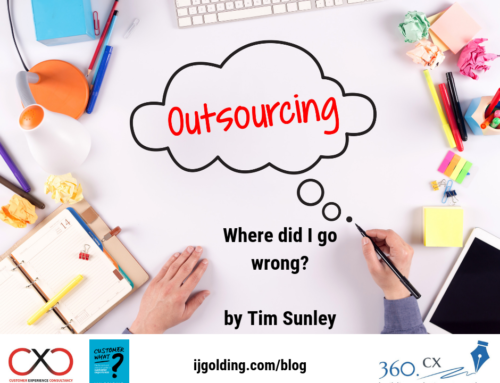I am often asked what I do for a living. This is by no means unusual. I am sure the same happens to you on a regular basis. If I had been a doctor, or lawyer, or plumber, or electrician, or nurse, or accountant, this would be an extremely simple question to answer. In fact, I would never have given the enquiry a second thought.
Unfortunately for me, I have never been able to fire back a simple response. In my time, as well as having worked in the invoice finance industry – try explaining invoice discounting and factoring to your mother – I have spent many years in the area of process improvement. When asked the dreaded question (which is what it became for me), the look of puzzlement and surprise in people’s faces when I calmly used to say, ‘well actually I am a Lean Six Sigma Master Black Belt’, always used to instantly end a conversation. Oh – was often what the person asking me the question would come back with, before swiftly moving on to the weather and other subjects. Talking of my mother – she has never understood what I do – she has been married to an accountant for over forty years – that is pretty simple. If your mother does not get it, what hope do you have with anyone else?
Today, the situation for me is not much better. I am officially a ‘Customer Experience Professional’ – an independent specialist helping, guiding, advising and consulting companies on how to improve the experience for their customers. This in turn will improve loyalty, employee engagement/advocacy, and ultimately the long-term health of the business. What is so difficult to understand about that?
Well, as with many things I have learnt over the years, what might sound obvious to me is not necessarily obvious to others. The most common response to the ‘dreaded question’ now is, ‘customer experience what?!’ ‘You must be in marketing then?’ ‘Do you work in a contact centre?’ ‘Are you in PR?’ You must be in advertising’. No, No, No and No.
I am not a marketer, yet it is vital that those working in a marketing function understand what their brand(s) stand for from the ‘customer perspective’. Marketer’s need to ensure they clearly understand their organisations ‘customer experience strategy’ – in fact, they should be involved in creating and sustaining it. Customer service functions and contact centres are a critical element of the experience any organisation delivers to the customer – but the key point is that is ‘part’ of the whole experience.
In 2012, thousands of professionals across the globe now have ‘customer experience’ in their job titles. If you do a quick scan on LinkedIn, you will find titles including:
- Head of Customer Experience
- Chief Customer Officer
- Chief Experience Officer
- Customer Experience Director
- Customer Experience Manager
- Customer Champion
- Customer Excellence Manager
- Customer Experience Designer
- Customer Experience Transformist
- Customer Experience Strategy & Capability Builder
- Customer Experience Development
- Customer Experience Architect
I could keep going, but if you have not got bored already, you soon will! So what does this all mean? What is ‘customer experience’ and what do all of these people do? The customer experience can be defined as the following (according to Wikipedia):
‘Customer experience is the sum of all experiences a customer has with a supplier of goods or services, over the duration of their relationship with that supplier. From awareness, discovery, attraction, interaction, purchase, use, cultivation and advocacy.’
This is as good a definition as any. It is about the ‘end to end’ relationship. Not just sales and marketing, not just customer service. Customer Experience is something that every employee in your organisation can have an impact on – it is a collective responsibility for all. The ‘customer experience professional (CXP)’ (whatever fancy job title they may have) fulfils a number of very important functions including:
- Providing the organisation with the facts – the facts from the customer perspective. They take customer feedback/insight, and internal operational data, and inform the organisation as to how well it is doing. In doing this, the CXP is often independent from any business function. They are diplomats, and influencers – allowing process owners to understand where the organisation needs to focus improvement – not anecdotally, or using judgement – but using information provided by customers – the key drivers of dissatisfaction, or the key reasons for lack of recommendation or attrition.
- Clearly defining and designing the customer journey – again from the customer perspective. Organisations often misinterpret when the customer journey starts and ends – doing this can be extremely dangerous. Failure to understand the full end to end journey may mean that the facts being gathered are not the full facts. Without the full facts, a business may decide to invest in something that is not the priority. In a previous role, our ‘voice of the customer’ solution was failing to gather feedback from customers at the beginning of the journey – this is the stage where 100% of customers are active – once our feedback solution was changed, significant issues to address were identified. CXPs will also help to re-design existing customer journeys, or design new journeys.
- Facilitating the creation and maintenance of Customer Experience strategy – many organisations have well-defined business strategies – it is not uncommon for those strategies to almost entirely focus on revenue generation and cost control. Rarely do these business strategies state what the customer experience vision and objectives may be to enable other elements of the business strategy to be realised. CXPs help to do this – in conjunction with all relevant functions and process owners.
- Engaging and motivating employees to become advocates of your brand – this is not just the remit of HR and communications functions. The role of the CXP is to enable employees from all across the organisation to understand they role they play in delivering, improving and sustaining the organisation. From introducing recognition programmes such as the WOW awards – a fantastic way of motivating employees by empowering customers to nominate employees for recognition (http://www.thewowawards.co.uk/) , to creating tools that allow employees to help improve the customer experience. In 2010, my previous company (Shop Direct Group) won a UK Customer Experience Award) for Customer 1st Aid – a tool I created to allow all 10,000 employees to help us understand the things we were doing that were detrimental to the customer. It both improved our customer facing processes and had a wonderful effect of motivating employees to make a difference. This is also about turning people into fans of your brand – along the lines of the O2 fanbook principle – O2 believe that their people need to be fans of their brand – if they are not, how can they expect their customers to be? A great point that I agree with.
These are just four of the areas that a genuine CXP will be involved in. They work across the entire organisation, influencing, motivating and improving. It is rewarding, but also frustrating. Many businesses do not believe they need someone to do this – it is ‘BAU’. The fact that more and more CXPs are being recruited in to organisations, with the skillsets and experiences of doing the things I have described, suggests that many think otherwise.
The ‘profession’ that is Customer Experience is still relatively new. Perhaps that explains why most people do not understand what it is. However, it will not be long before CX as a profession becomes as common as a marketer (or any other profession). To highlight this point, you only need to look at the creation and evolution of the CXPA – the Customer Experience Professionals Association (http://www.cxpa.org/).
The CXPA was founded in 2011 by two CX professionals – Bruce Temkin and Jeanne Bliss. They created it, significantly as a non-profit making organisation, to support the development of customer experience professionals. The official description of the association is as follows:
‘The Customer Experience Professionals Association (CXPA) is a global non-profit organization dedicated to the advancement of customer experience management practices. Our members are individuals who develop, manage, optimize, and envision how organizations interact with their customers. This community includes customer experience practitioners within companies, vendors who support customer experience efforts, and other stakeholders in the industry. CXPA supports the professional development of its members and advances the field by providing research and education, developing standards, offering networking opportunities, promoting the industry, and creating a better understanding of the discipline of customer experience.’
In just over twelve months, the CXPA has grown to over 1,600 members from across the globe. The membership is growing fast. It is very likely that I am not the only one who is asked ‘customer experience ‘what’’?!
A customer experience professional is someone who all consumers should be delighted to know are becoming more and more common in businesses everywhere. Organisations are realising the importance of doing what is right for their customers, rather than solely what is right for them. Doing what is right for your customers, should mean that your business has a long and happy future. They are not marketers, or customer service managers, they are customer experience professionals.
Recently, as some of you will know, I featured (with my family) in a BBC TV programme. In the first episode, the voiceover described me as a ‘customer service manager’ – wrong. The second programme promoted me to a ‘customer service consultant’ – wrong. The series producer asked me what my job actually was – she thought I was an HR consultant!!!!!! When I told her what I really was, she said……..you can guess what she said.
I will make her read this blog – maybe she will understand the next time she comes across one of us. If you have read this blog, the next time someone says they are a Customer Experience Something; you’ll also know exactly what they mean.
You are very welcome to comment on any of my blogs. If you want to know more about the CXPA, please visit the website – http://www.cxpa.org/ or let me know.









I enjoyed reading your “explanation” for what it you do. I get this question often as well, depending on who the audience is, time of day and my over-all willingness to engage in conversation my answers vary from “I sell software” to a full fledged answer. The best part of my job is working with the “business” inside of my customer’s organizations and helping them to differentiate themselves nearly in a one/on/one engagement with their clients via technology and strategy. The excitement, conviction and pure sincerity to make the customer’s life better as a result of interaction with their brand is refreshing. Cheers, Carrie Tullos – CXM Manager Oracle
For me one of the best thing to improve the customer services is to give relevant info base on customer want,because sometimes most of the customer annoy with poor customer services,in Finland country relevant info for every customer want give them a satisfaction.
[…] I have blogged about before – one of my first blog posts explored exactly what I do for a living https://ijgolding.com/2012/07/26/customer-experience-what/ – very little has changed since I wrote […]
Yes, for some strange reason it is a hard concept to understand for people. Great job describing it 🙂
The industry itself is not helping either though because there’s also confusion with UX, which is only a part of the CX.
I often tell people….well…every business has a customer right? then they nod….;) my role is to understand what they’re experience is with this business….either being online or offline, it can start with a friend talking about the new push up bra she saw online ….to….going to the shop, trying it on and maybe buying it online after cause it’s cheaper or whatever…. So, i need to understand this whole journey or experience with the brand and see where it can be improved or revolutionized 🙂
Giving an example always helps….
Good luck everyone in your CX career, it’s challenging but very rewarding and full of knowledge – no 2 people are the same – there are personas indeed but uncovering those extreme insights is what keeps me hyped 😉